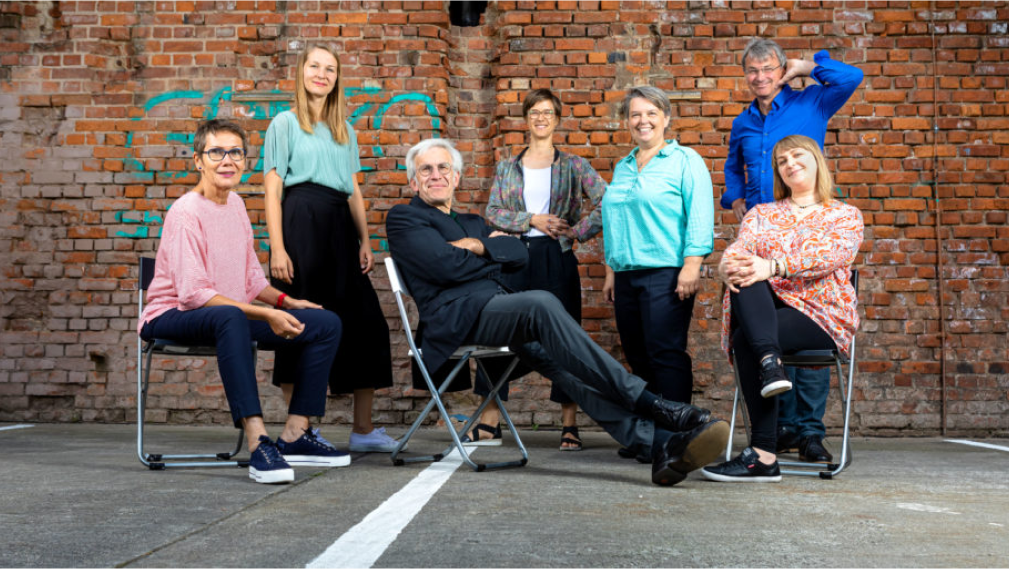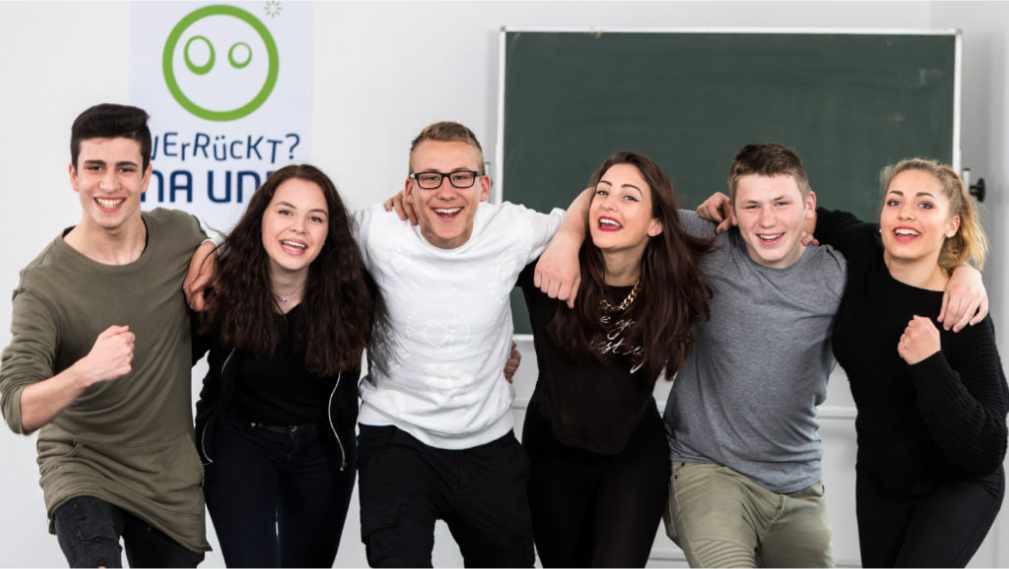Irrsinnig Menschlich in a few lines?
We at Irrsinnig Menschlich, known in English as Madly Human, have been motivating young people with our prevention programmes for over 20 years. We seek to better understand psychological crises and mental illnesses, and to reduce the stigma, anxieties and prejudices associated with psychological crises, as well as to boost confidence, to spread knowledge and to outline approaches, at the same time as improving attitudes, promoting a readiness to seek help and fostering resilience.
Our international non-profit organisation based in Leipzig, Germany, is committed to cross-sectoral work in the fields of education (school, vocational training, higher education) and health (prevention, provision). Our core competence lies in developing and testing as well as implementing and scaling universal prevention programmes for young people, working alongside our partners to achieve this aim.
We work in accordance with the social entrepreneurship approach, which aims to solve problems by applying innovative and entrepreneurial concepts. This is why, our founder, Dr Manuela Richter-Werling, was elected to the international Ashoka Fellowship in 2009.
We will receive input from different countries across Europe, have plenty of time for questions and discussions and, to make up for the fact that we will not be meeting in-person, we will send MHE members a goodie bag with some items that will hopefully trigger ideas about mental health in a positive way.
Please note that translations will be available in multiple languages. Registration is open until 8 December 2021.



